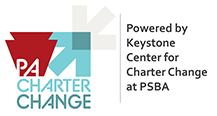GAO January 2022 Report: Department of Education Should Help States Address Student Testing Issues and Financial Risks Associated with Virtual Schools, Particularly Virtual Charter Schools
United States Government Accountability Office – Report to Congressional Requesters, January 2022
Virtual charter schools—public charter schools that operate entirely or mostly online—largely depend on self-paced, asynchronous (accessed at any time) instruction and often rely on parents to act as instructors, according to GAO’s review of a nationally representative sample of virtual charter school websites and interviews with school officials. Officials told GAO that families may choose these schools partly for these reasons, but students can struggle with the level of independence and parents can find the time commitment overwhelming. Virtual charter schools had significantly lower proficiency rates on states tests compared to other school types. For example, the average math proficiency rate for virtual charter schools was 25 percentage points lower than the rate for brick and mortar traditional schools (see figure). In addition, a smaller proportion of virtual school students participated in state tests. However, there is a lack of systematic information about why virtual schools have lower participation rates and what common challenges across states may be contributing to low rates.
Click here to read more.
